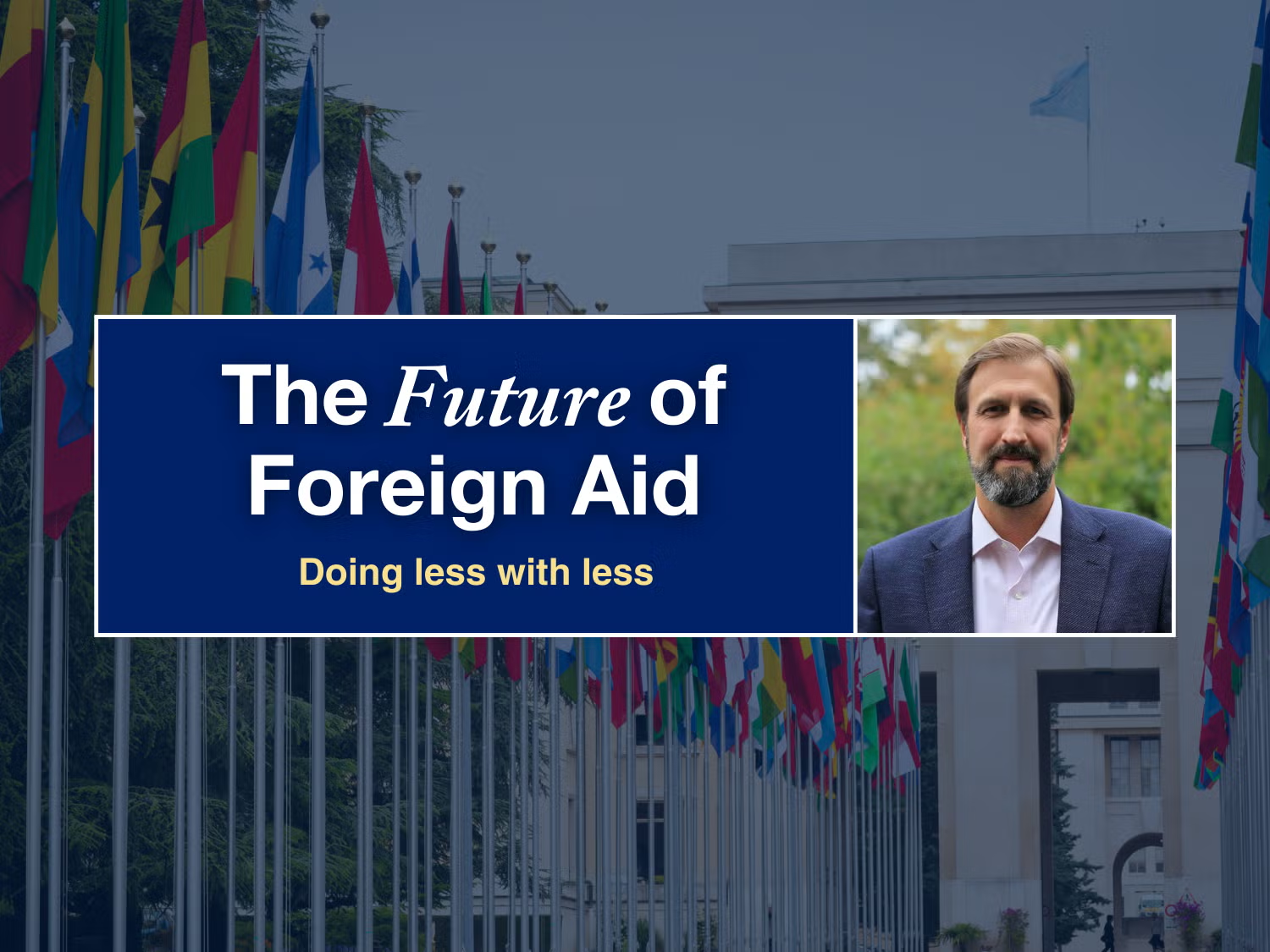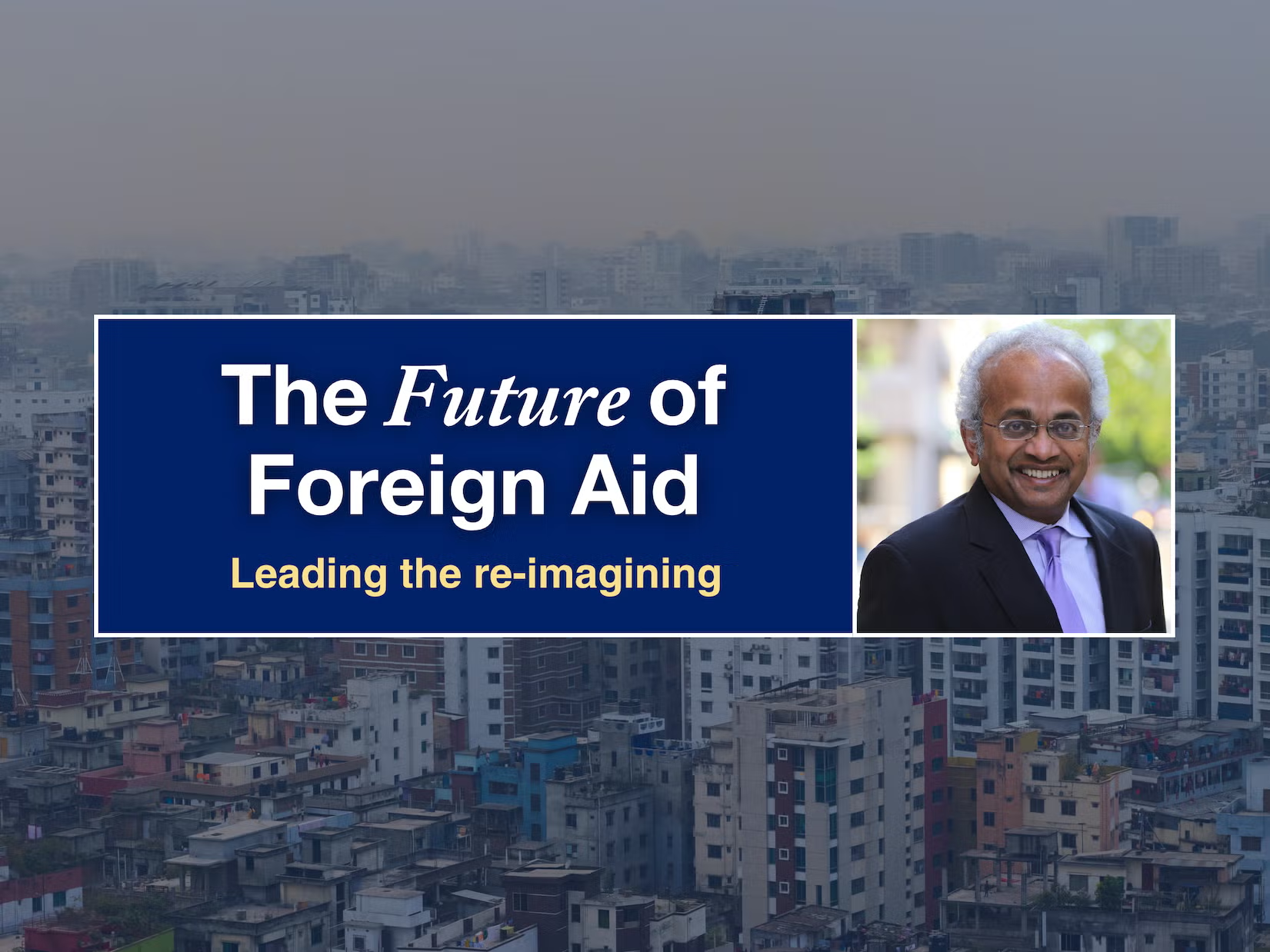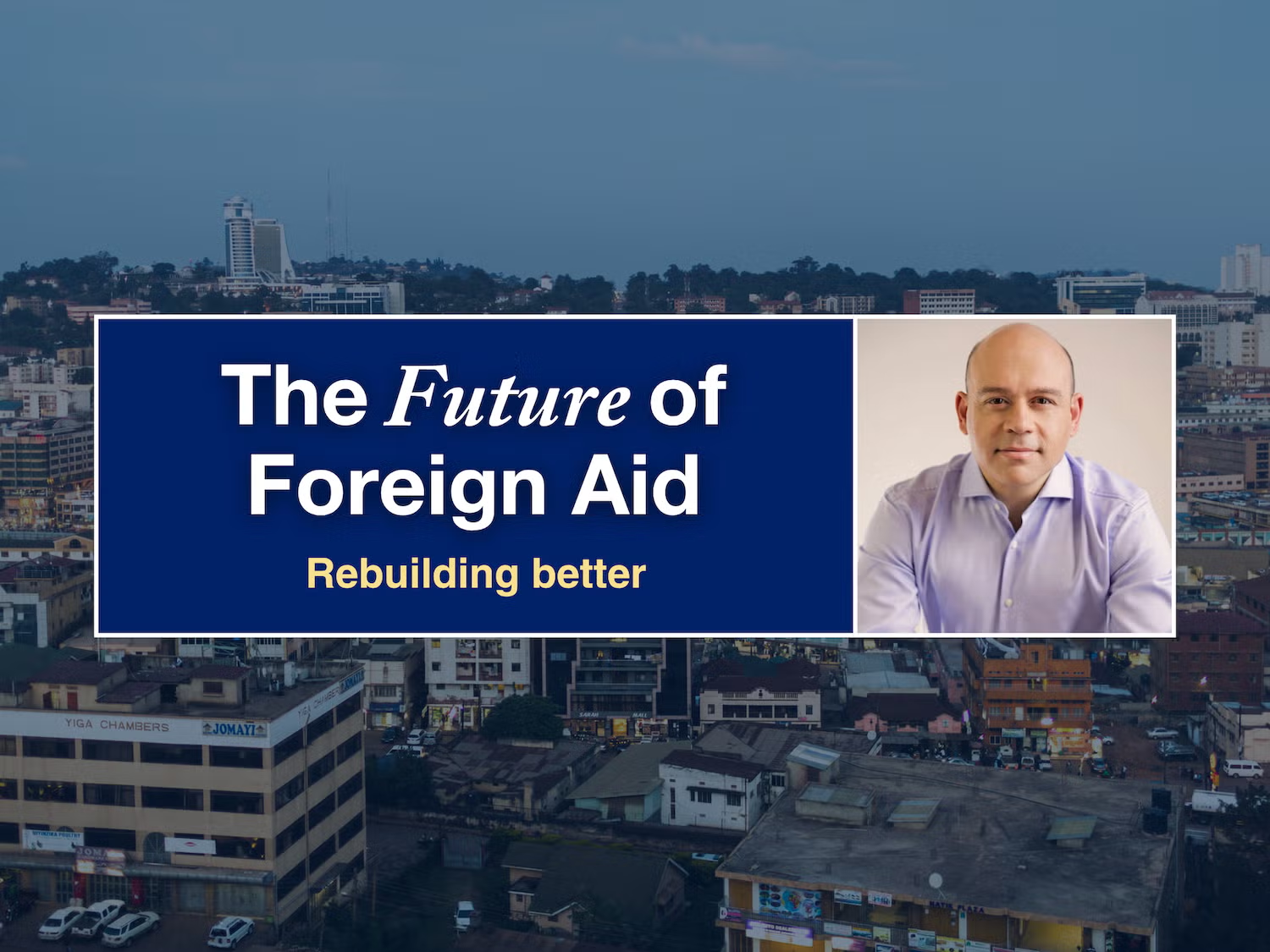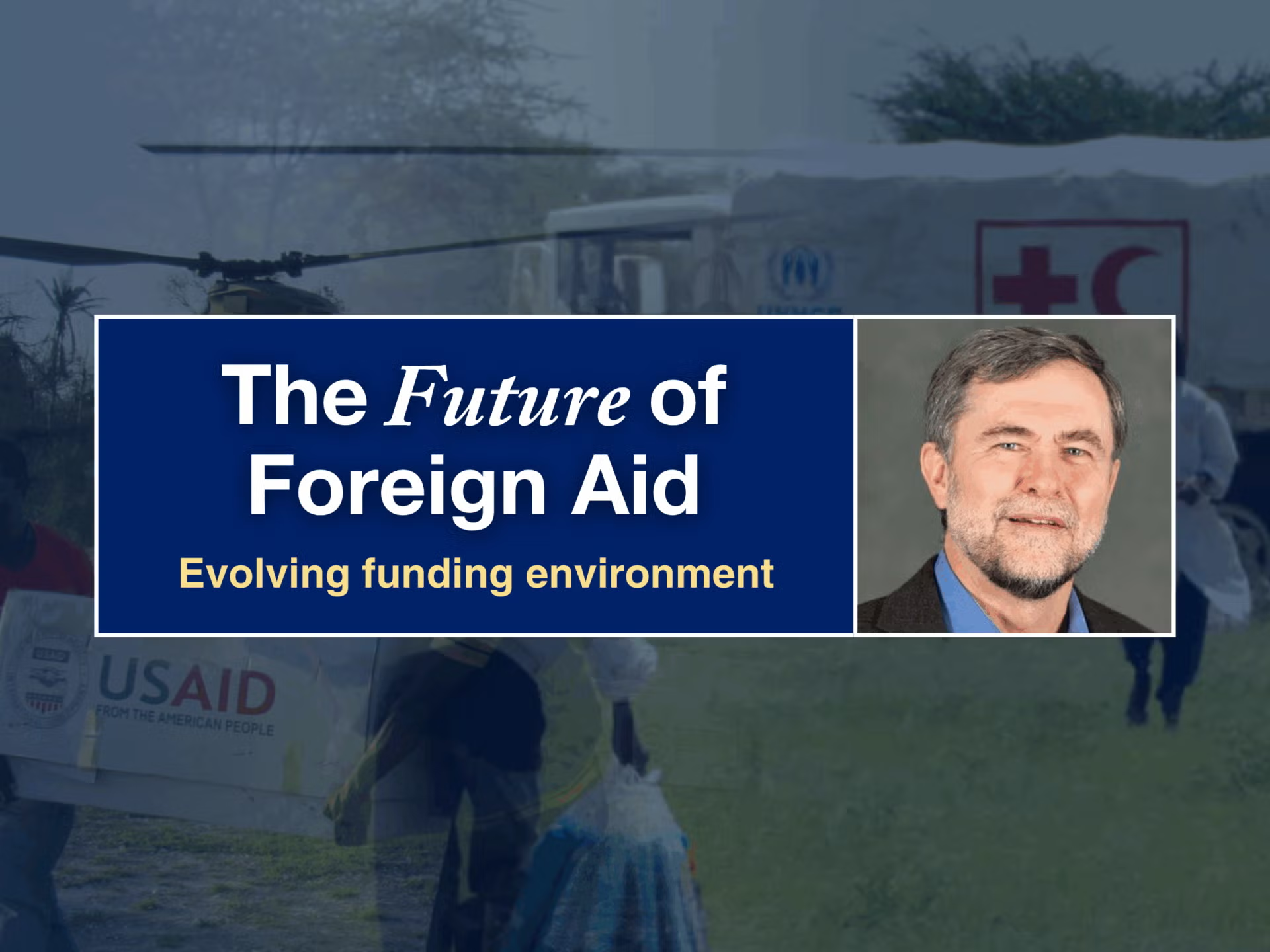SFS Stories
Future of Foreign Aid
-

The future of foreign aid: doing less with less
Jeremy Konyndyk (MSFS’03) urges the humanitarian sector to use this drastic funding shortage to do with less by focusing on localization, rethinking the humanitarian financial architecture and mustering the political will to let go of traditional habits and turf battles.
-

The future of foreign aid: alternative donors bring different models
Professor Shareen Joshi, associate professor in the School of Foreign Service, highlights the difference in models that comes with alternative development funding from China, the Gulf states or regional development banks.
-

The future of foreign aid: leading the re-imagining
Professor Shantayanan Devarajan encourages the United States to continue to lead in development of ideas for re-imagining aid, regardless of whether its funding contribution has decreased.
-

The future of foreign aid: humanitarian reset in Ukraine
Anna Khandros (GHD’19) reflects on her experience with humanitarian aid delivery in Ukraine that had to quickly adapt when U.S. funding ended overnight.
-

The future of foreign aid: rebuilding better
Raj Kumar (SFS’97), founding president and editor-in-chief of Devex, discusses what kind of opportunities the immense changes provide to improve the way international development and aid are structured and delivered.
-

The future of foreign aid: evolving funding environment
SFS Professor Steven Radelet weighs in on the impact of the changes to foreign aid and the opportunities that they may present in a new series.